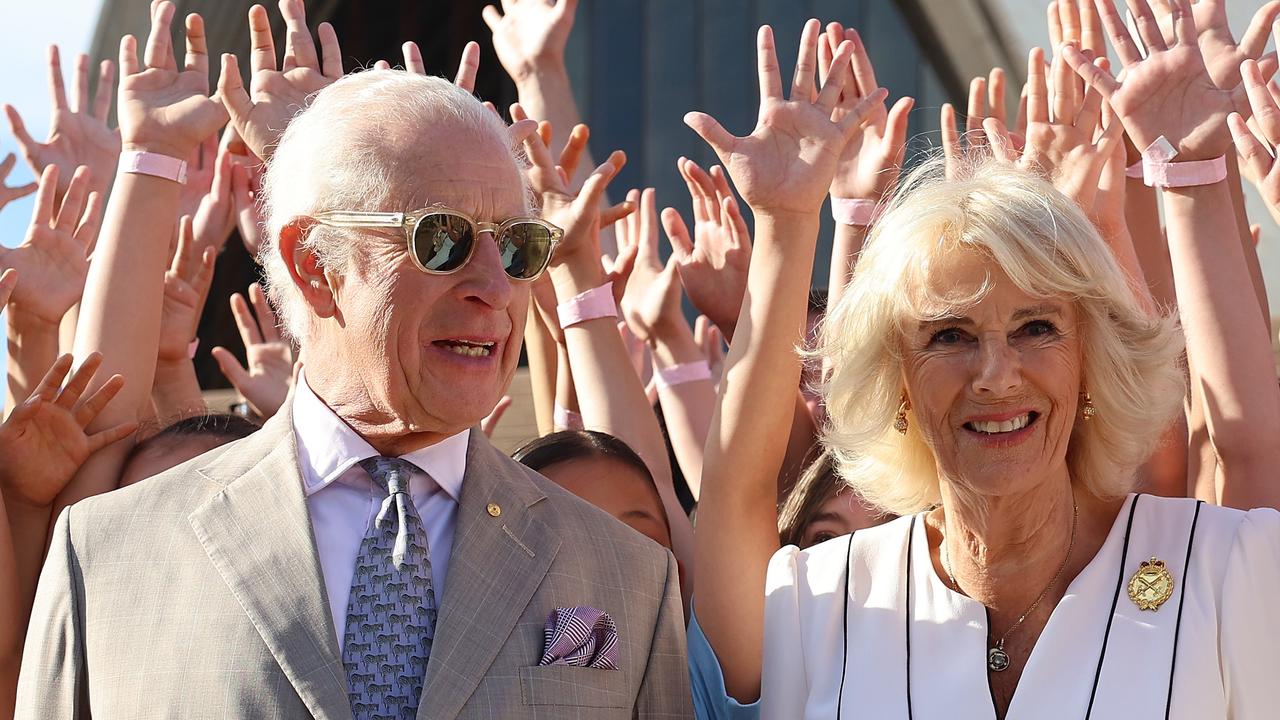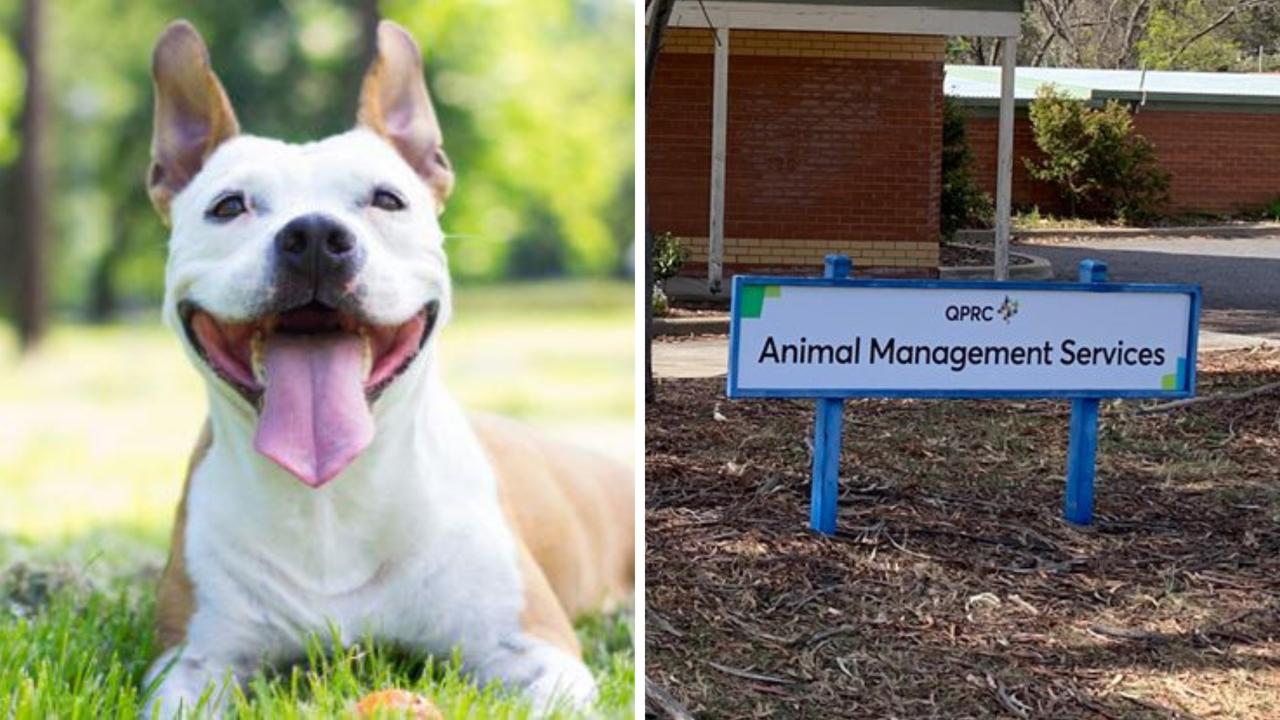Grace Tame fights for substance as Scott Morrison focuses on optics in wild week of politics
While many of us were talking about a years-old photo of Grace Tame this week, the woman herself was focused on something of actual significance.
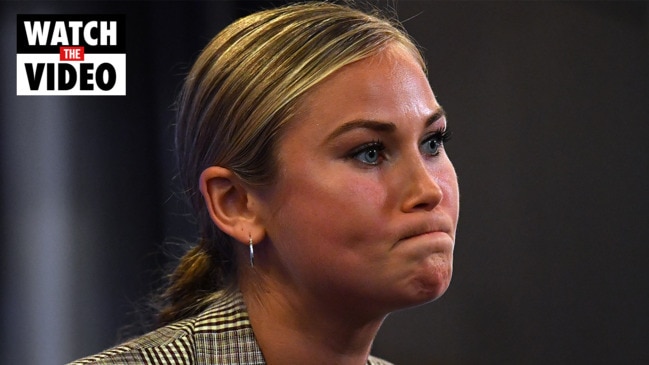
National
Don't miss out on the headlines from National. Followed categories will be added to My News.
COMMENT
While many of us were talking about a years-old photo of Grace Tame sitting next to a bong this week, the woman herself was focused on something of actual significance.
Ms Tame, through her foundation, was raising money to change the wording of laws that warp the definition of child sexual abuse.
“The man who abused me was convicted of ‘maintaining a sexual relationship with a person under the age of 17,’” Ms Tame explained at the National Press Club earlier this month.
“In other jurisdictions, this exact same offence was called ‘the persistent sexual abuse of a child’. The former implies consent, while the latter reflects the gravity and the truth of an unlawful criminal act committed against an innocent, vulnerable child-victim.”
The Tame Foundation’s fundraising page notes that “language matters”, and language that “minimises, sanitises or romanticises rape and sexual violence” must be reformed.
It might surprise you to learn that, on this issue, we have a fair way left to go in this country. Among Australian jurisdictions, only Tasmania, Victoria and Western Australia have removed “sexual relationship” from the name of the crime in question. Everywhere else, it remains.
With two months left in the foundation’s fundraising campaign, it has already far exceeded its target of $50,000. That tells us something: despite all the contentious talk about Ms Tame’s attitude towards the Prime Minister, or indeed irrelevant photos from her youth, her effectiveness as a campaigner is indisputable.
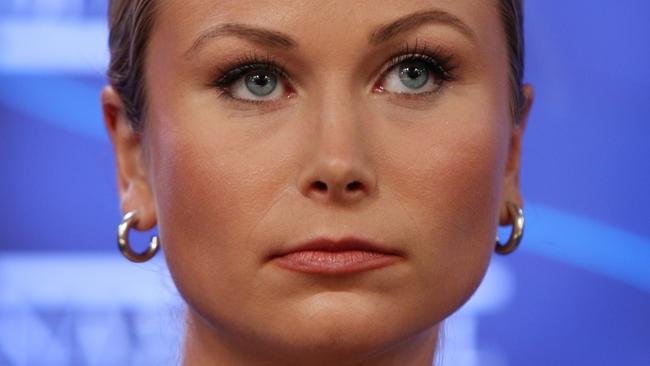
My opinion obviously doesn’t matter much here, but this is an opinion piece, so screw it: I’ve been disappointed with the Prime Minister’s treatment of Ms Tame these past few weeks. He’s been implicitly criticising her, without having the stones to do it explicitly.
“I haven’t raised any issues about this,” Mr Morrison said after the awkward photos of him and his wife Jenny greeting an unsmiling Ms Tame at the Lodge drew attention.
“All I’m saying is, we were there that day to celebrate those who had done an incredible job for our country. And Jenny and I wanted to welcome them to our home and wish them all the best.
“Look, Grace is a passionate person who’s raised important issues. She’s had a terrible life ordeal, you know, things happened to her, her ordeals, the abuse. It’s just awful. And I know a lot of Australians, me included, you know, support her efforts to ensure that these issues can be raised and addressed.
“So I thank her for her time as Australian of the Year, and as I say, if people come to our house, Jenny and I always greet them with a smile.”
I’m sure you spotted the implicit messages: that Ms Tame distracted from the people who were supposed to be the focus of the day, that he didn’t blame her for it because of the “ordeals” she’d been through, that he will always greet people “with a smile”, and by implication it was rude for her not to give him one.
It would have been simple for Mr Morrison to address the incident without implying any of those things. He could have said, “Grace Tame has done invaluable work as Australian of the Year, she has a right to express herself however she wishes, and I thank her for her service,” and left it at that.
Jenny Morrison, to her credit, was far more upfront during the couple’s 60 Minutes interview.
“I just found it a little bit disappointing, because we were welcoming her in our home,” Mrs Morrison said.
“I just wish the focus had been on all the incredible people coming in. I respect people that want to change things, stand up for their beliefs, and are strong, but I still think there are manners and respect.”
I don’t think it’s too uncharitable a leap to suggest Mr Morrison holds the same opinion. His own words on the matter hint at it. But at no point since that incident on the eve of Australia Day has he expressed it as honestly and forthrightly as his wife did.
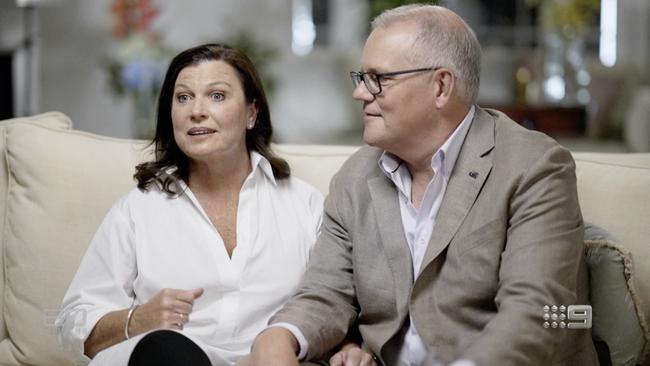
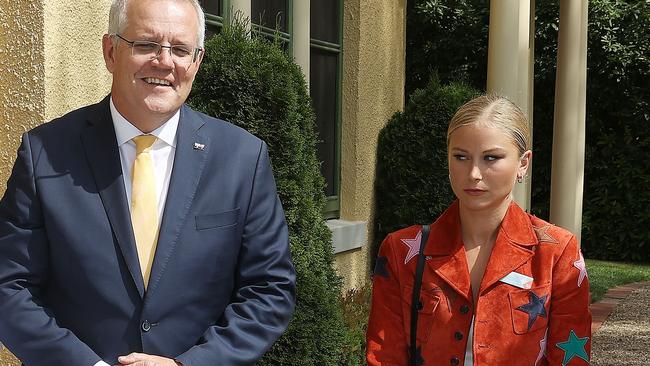
And that goes to the core concern people have about Scott Morrison: that he’s chronically disingenuous, even by the low standards of a politician; that he’s all about optics and politics, rather than substance.
Which brings us somewhat neatly to the past week of parliamentary nonsense, and a dramatic escalation in the Prime Minister’s pre-election rhetoric.
Mr Morrison has been telling Australians that Labor, led by Anthony Albanese, is “the Chinese government’s pick” for the election. He has accused Labor of being soft on China, labelling it a foreign policy pushover which will jeopardise Australia’s national security.
During Question Time on Wednesday, he went so far as to call Labor’s deputy leader, Richard Marles, a “Manchurian candidate”. The term refers to a politician who is the puppet of a foreign enemy.
This was based on a speech Mr Marles gave in Beijing a few years ago, which included a vague, diplomat-speak thought bubble about possible military co-operation with China.
(Labor’s outrage at the Prime Minister’s slur, initially justified, was completely undermined when Mr Albanese retaliated by calling Mr Morrison a Manchurian candidate the following day.)
Note that Mr Morrison was relying on some quotes from a 2019 speech, rather than any substantive policy difference between the major parties, to argue Labor’s stance towards China was too weak.
That’s because there is little difference between the government and opposition on the matter. Labor has been consistently bipartisan on China policy during Mr Morrison’s tenure, supporting the government’s stances on everything from the AUKUS security pact, to Hong Kong, to calling out China’s human rights abuses, to slamming its attempts at coercion and its actions in the South China Sea.
Are there people within Labor who would like the party to be softer on China? Certainly. Former prime minister Paul Keating is one of them. Among those who have pushed back on his views is ... you guessed it: Anthony Albanese.
The kindest interpretation of Mr Morrison’s rhetoric here is that it sprouted from something resembling a reasonable point (that Labor doesn’t spend as much on national defence as the Coalition), but has become comically overblown.
As Ms Tame’s foundation said, “language matters”.
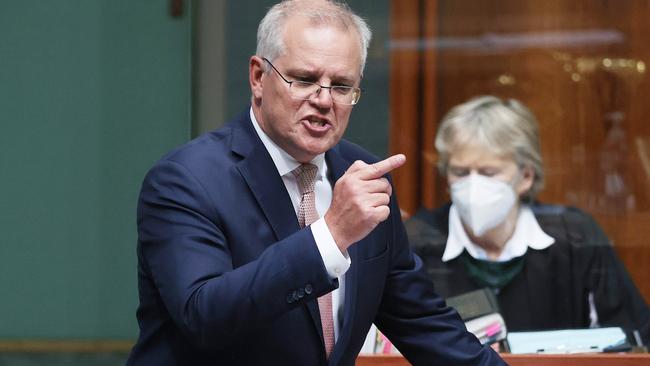
Hence the two public interventions from current ASIO boss Mike Burgess this week. Speaking to 7.30, Mr Burgess said the politicisation of national security was “not helpful” to his agency. Everybody knew what he was alluding to.
Then there were the less diplomatic remarks from his predecessor Dennis Richardson, who accused the government of trying to manufacture division where none actually existed for political purposes.
Mr Richardson is not usually a critic of this government’s foreign policy. This is a former ASIO chief, a former US ambassador, a former head of both the Foreign Affairs and Defence departments. His opinion is not partisan, and it carries weight.
“First of all, I don’t have an issue with the government’s approach to national security generally. I think it has a very good record in that area. Others would disagree but that is my own view,” Mr Richardson stressed.
“Secondly, differences between the political parties on matters of national security are perfectly proper in a liberal democracy.
“What is unusual in this case is that the government is seeking to create the perception of a difference between it and the opposition on a critical national security issue – China – seeking to create the perception of a difference where none in practice exists.
“That is not in the national interest. That only serves the interest of one country, and that country is China.”
In a separate interview, he said the government was “doing the work of China”.
.@ASIOGovAu’s director-general @MikePBurgess says it’s “not helpful†when national security is politicised. He told 7.30 “the foreign interference is against all members of parliament, so it doesn't go after one particular party or the otherâ€. #abc730#auspolpic.twitter.com/ks8uOGFRzQ
— abc730 (@abc730) February 17, 2022
So to summarise, Mr Morrison is currently arguing he will do a better job of protecting Australia’s national interest than Anthony Albanese by ... actively jeopardising Australia’s national interest, in a way that will help China, for no reason other than his own political benefit.
Mr Morrison must realise how ironic this is.
Maybe it will work for him anyway – there’s a long history of tough talk on national security benefiting politicians during elections. But when your biggest weakness is the perception that you’re disingenuous, over-egging an issue to this extent is certainly a gamble.
Watching the inflammatory rhetoric this week made me think back to the anger Ms Tame copped for showing her displeasure with the Prime Minister, as well as the criticism Jenny Morrison copped, in turn, for expressing her honest disappointment with Ms Tame.
Whichever of those two women you agree with, there is no doubt either of them was being entirely genuine. We cannot say the same of our Prime Minister. And that is a problem.
Think I’m wrong? Tell me why on Twitter: @SamClench
Originally published as Grace Tame fights for substance as Scott Morrison focuses on optics in wild week of politics


